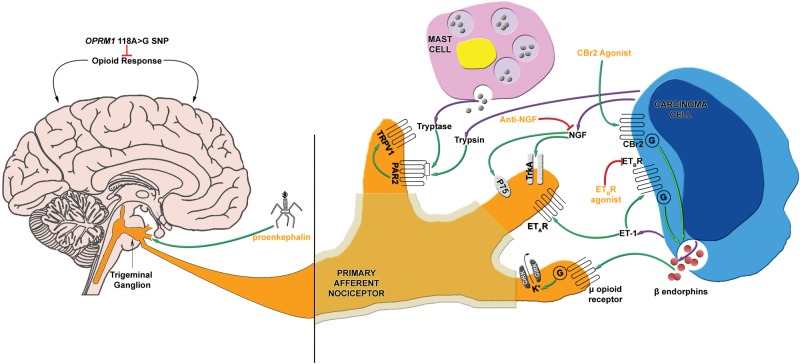Figure 2.
Mediators of oral cancer pain and current novel analgesic therapy. Mediators that have a known role in oral cancer pain include: ET-1, which activates ETAR and ETBR; proteases, which activate PAR2; and NGF, which activates p75 and TrkA receptors. In addition to nociceptive mediators, the OPRM1 118A>G SNP affects opioid response, which in turn affects cancer pain. Currently established endogenous analgesic mechanisms include the endogenous opioid and cannabinoid systems. Release of beta-endorphin, an endogenous opioid, could be stimulated by activation of the endothelin axis (ETBR) or cannabinoid system (CBr2). There are several potential analgesic therapies targeting oral cancer pain. These include virus-mediated gene transfer to express proenkephalin, anti-NGF with a neutralizing antibody, and ETBR agonism.

